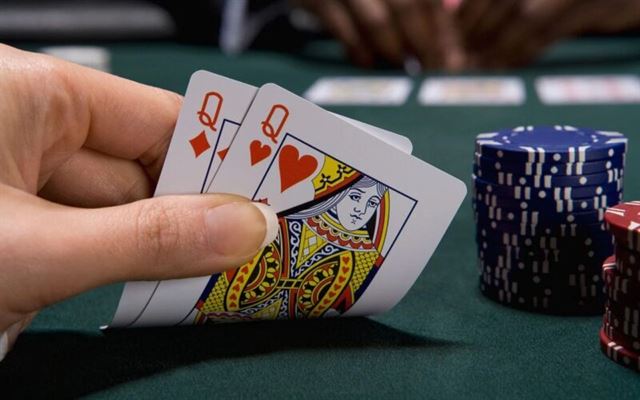Poker is a game that requires both skill and strategy. It’s not just about the cards you hold, but also about how you read your opponents and make decisions under pressure. One crucial aspect of mastering poker decisions is understanding and analyzing your opponents’ betting patterns. By paying close attention to how they bet, you can gain valuable insights into their hand strength and intentions.
The Importance of Reading Poker Opponents’ Betting Patterns
Reading your opponents’ betting patterns is like deciphering a secret code. Each player has their unique style and tendencies when it comes to betting. Some may be aggressive and constantly raise the stakes, while others might play more conservatively and only bet when they have a strong hand. By observing these patterns, you can start to form a mental profile of each opponent at the table.
In addition to gaining insight into your opponents’ hand strength, analyzing their betting patterns can also help you understand their mindset and emotions during the game. For example, if an opponent suddenly starts making large bets after playing cautiously for several rounds, it could indicate that they have a strong hand and are feeling confident. On the other hand, if someone who has been consistently aggressive suddenly becomes cautious with their bets, it might suggest that they are unsure about their hand or are trying to bluff.
Another important aspect of reading betting patterns is being able to identify any inconsistencies or deviations from an opponent’s usual behavior. People tend to fall into patterns, especially when it comes to betting. If you notice someone deviating from their usual pattern, it could be a sign that something is amiss. Perhaps they are trying to throw you off or compensate for a weaker hand. By recognizing these inconsistencies, you can adjust your own strategy accordingly and potentially gain an advantage over your opponent.
However, it’s essential to remember that betting patterns alone should not be relied upon as the sole basis for making decisions in poker. While betting patterns can provide valuable information, they should always be considered in conjunction with other factors such as the player’s position at the table, their previous actions, and the community cards on the board. A player may intentionally vary their betting patterns to mislead their opponents or create a false image.
To effectively read your opponents’ betting patterns, you need to develop a keen sense of observation and pay attention to every detail. This includes not only how much someone bets but also the timing of their bets, their body language, and any verbal cues they may give. Remember that people often reveal more than they intend through their actions and behaviors. By honing your observational skills, you can become better at detecting these subtle signals and making more informed decisions.
In conclusion, reading poker opponents’ betting patterns is an essential skill for mastering poker decisions under pressure. It allows you to gain insights into your opponents’ hand strength, mindset, and emotions during the game. However, it’s crucial to consider other factors and not rely solely on betting patterns when making decisions. Developing strong observation skills and paying attention to every detail will help you become a more successful poker player. So, next time you’re at the poker table, remember to keep a close eye on your opponents’ betting patterns – it could be the key to unlocking your victory.
Strategies for Making Calculated Bets in Poker Tournaments
Poker is a game of skill, strategy, and nerves. In poker tournaments, where the stakes are high and the pressure is on, making calculated bets becomes crucial. Mastering poker decisions under pressure requires a combination of knowledge, experience, and mental fortitude. In this article, we will discuss some strategies that can help you make more informed and successful bets in poker tournaments.
Firstly, it is important to understand the concept of pot odds. Pot odds refer to the ratio of the current size of the pot to the cost of a contemplated call. By calculating pot odds, you can determine whether it is mathematically profitable to make a bet or call. To calculate pot odds, simply divide the current pot size by the cost of your contemplated action. If the resulting ratio is higher than the probability of winning the hand, then it may be a favorable bet.
Another strategy for making calculated bets is to consider your position at the table. Your position in relation to the dealer button determines the order in which you act during a hand. Being in a later position gives you more information about your opponents’ actions before you have to make a decision. This allows you to make more informed bets based on their previous actions. Conversely, being in an early position puts you at a disadvantage as you have less information to base your decisions on.
Furthermore, understanding your opponents’ playing styles can greatly influence your betting decisions. Some players are aggressive and tend to bet or raise frequently, while others are more passive and tend to check or call more often. By observing your opponents’ tendencies, you can adjust your betting strategy accordingly. For example, if you are facing an aggressive player, you may want to play more defensively and wait for strong hands before making big bets.
Additionally, managing your bankroll is crucial in poker tournaments. A common mistake made by many players is to bet too much of their stack on a single hand. This can put you at risk of losing all your chips and being eliminated from the tournament. It is important to make calculated bets that are proportional to the size of your stack. By carefully managing your bankroll, you can stay in the game longer and increase your chances of making it to the final table.
Furthermore, bluffing can be an effective strategy for making calculated bets in poker tournaments. Bluffing involves making aggressive bets or raises with weak or mediocre hands in order to deceive your opponents into thinking you have a stronger hand than you actually do. However, bluffing should be used sparingly and strategically. It requires careful observation of your opponents’ reactions and a good understanding of their playing styles. Bluffing without a solid plan can backfire and result in significant losses.
In conclusion, mastering poker decisions under pressure requires a combination of strategies and mental fortitude. Understanding pot odds, considering your position at the table, observing your opponents’ playing styles, managing your bankroll, and using bluffing strategically can all contribute to making more informed and successful bets in poker tournaments. With practice and experience, you can develop the skills necessary to excel in high-pressure situations and become a formidable player in the world of poker.
Psychological Tactics to Influence Betting Decisions in Poker
Poker is a game of strategy, skill, and psychological warfare. In order to succeed at the poker table, players must not only have a strong understanding of the game itself but also be able to navigate the complex web of psychological tactics that can influence betting decisions. This article will explore some of these tactics and provide insights into how players can master their decision-making abilities under pressure.
One of the most effective psychological tactics in poker is known as “bluffing.” Bluffing involves making bets or raises with weak hands in an attempt to deceive opponents into folding stronger hands. The key to successful bluffing lies in creating doubt and uncertainty in the minds of your opponents. By carefully observing their reactions and body language, skilled players can exploit this doubt and make profitable bluffs.
Another important tactic is known as “value betting.” Value betting involves making bets with strong hands in order to extract maximum value from opponents who hold weaker hands. The goal is to make your opponents believe that they have a chance to win the hand, enticing them to call your bets. Skilled players use various techniques, such as controlling the size of their bets or timing their bets strategically, to maximize their chances of success.
Psychological manipulation is another powerful tool in a poker player’s arsenal. By manipulating the emotions and thought processes of their opponents, skilled players can gain a significant advantage. One common tactic is known as “tilting,” which involves intentionally provoking opponents to make irrational decisions due to frustration or anger. By exploiting these emotional weaknesses, players can increase their own chances of winning.
In addition to manipulating opponents, players must also be aware of their own emotions and mental states. Maintaining a calm and focused mindset is crucial for making rational decisions under pressure. Emotional control is especially important when facing challenging situations, such as large bets or difficult decisions. Recognizing when emotions are clouding judgment and taking steps to regain composure is essential for long-term success in poker.
Furthermore, mastering the art of observation is vital for making accurate reads on opponents. Skilled players carefully study their opponents’ betting patterns, body language, and verbal cues to gain insights into their thought processes and hand strength. By paying close attention to these details, players can make more informed decisions and adjust their strategies accordingly.
In conclusion, mastering poker decisions under pressure requires a combination of strategic thinking, psychological tactics, emotional control, and keen observation skills. By understanding and utilizing these psychological tactics effectively, players can influence their opponents’ betting decisions and gain an edge at the table. Furthermore, maintaining emotional control and making accurate reads on opponents are crucial elements for success. With practice and experience, players can become masters of the mind games that define the world of poker.
Analyzing Betting Mind Games: How to Spot Bluffs and Make Profitable Calls
Poker is a game of strategy and skill, where players must make calculated decisions based on their knowledge of the game and the behavior of their opponents. One of the key aspects of poker is analyzing betting mind games, such as spotting bluffs and making profitable calls. In this article, we will explore some techniques to help you become a master at deciphering your opponents’ intentions and making smart betting decisions.
When it comes to analyzing betting mind games, one of the first skills you need to develop is the ability to spot bluffs. Bluffing is a common tactic used by poker players to deceive their opponents into thinking they have a stronger hand than they actually do. It involves placing bets or raising the stakes in order to intimidate other players and force them to fold their hands.
To spot a bluff, you need to pay close attention to your opponent’s betting patterns and body language. Look for inconsistencies in their actions – are they suddenly betting more aggressively? Do they seem nervous or uncomfortable? These could be signs that they are bluffing. Additionally, consider the overall context of the game – if a player has been playing conservatively all night and suddenly starts betting big, it’s likely they are trying to bluff their way to victory.
Once you’ve identified a potential bluff, the next step is to decide whether or not to make a profitable call. Making profitable calls means calling a bet when the potential reward outweighs the risk involved. This requires careful consideration of the pot odds – the ratio of the current size of the pot to the cost of your call.
If the pot odds are favorable, meaning there is a high chance of winning compared to the cost of your call, it may be worth taking the risk. However, if the pot odds are unfavorable, it’s often better to fold and wait for a better opportunity. Remember, poker is a game of long-term strategy, and making profitable calls consistently is key to success.
In addition to analyzing betting mind games, it’s also important to consider your own actions and how they may be perceived by your opponents. Poker is a game of psychology, and understanding the impact of your bets on others can give you a significant advantage.
For example, if you consistently bet aggressively when you have a strong hand, your opponents may start to associate your large bets with strength. This can lead them to fold more often, allowing you to win pots without having to show your cards. On the other hand, if you vary your betting patterns and mix in some bluffs, you can keep your opponents guessing and make it harder for them to read your intentions.
In conclusion, mastering poker decisions under pressure requires a deep understanding of betting mind games. By learning to spot bluffs, make profitable calls, and manipulate the perceptions of your opponents, you can gain a significant edge at the poker table. Remember, practice makes perfect – so take these techniques to heart and hone your skills through experience. Good luck!





